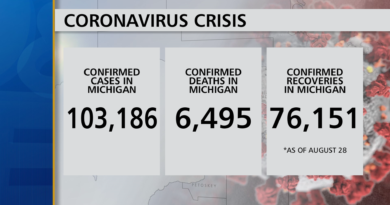the key to treating Covid-19 respiratory failure?

Sign up here for GlobalData’s free bi-weekly Covid-19 report on the latest information your industry needs to know.
Early in the Covid-19 pandemic, a research and development (R&D) consultant at Swiss pharma company Relief Therapeutics, Yves Sagot, realised that a drug developed in the early 2000s for acute respiratory distress and other lung diseases and acquired by Biogen could be effective at treating Covid-19.
Relief then reached out to US-based NeuroRx to help them co-develop this drug for Covid-19, because the latter has a “history of taking already known molecules and moving them very quickly through the FDA”, explains NeuroRx CEO and chairman Professor Jonathan Javitt.
The drug in question is now called RLF-100 and is a patented formulation of aviptadil, which is a synthetic human vasoactive intestinal polypeptide (VIP). This short peptide “protects the lung from all sorts of injuries”, explains Javitt. “We now know that this peptide is extremely effective in protecting the cell that is attacked by the SARS-CoV-2 virus that causes Covid-19.”
Due to its role in preventing infection with SARS-CoV-2, RLF-100 is being studied in Phase II/III clinical trials to treat critical Covid-19 patients and associated respiratory failure; so far 60 patients have been enrolled at five study centres. Data from the clinical trials are expected by the end of August.
In addition, at the end of July, the US Food and Drug Administration granted Relief and NeuroRx emergency use authorisation for the compassionate use of RLF-100 in patients who are too ill to enter the clinical trials.
Challenges in treating critical Covid-19 patients
A major barrier in the Covid-19 crisis has been saving the lives of patients whose disease has progressed to a critical condition where they can no longer breathe without support.
The main way that hospitals across the world have been dealing with critical Covid-19 patients experiencing respiratory failure is with ventilators. However, research has shown that ventilators are not appropriate for all Covid-19 patients – particularly elderly patients for whom ventilation may do more harm than good.
According to research published in STAT, the issue was that early on in the pandemic, when doctors were grappling with the unique features of Covid-19, there was a tendency to treat Covid-19 like pneumonia or sepsis, whereas it has a very different impact on the lung.
A more extreme approach also taken has been extracorporeal membrane oxygenation (ECMO), Javitt explains. ECMO does the job of the lung by pumping the blood out of a Covid-19 patient, adding oxygen and removing carbon dioxide and then pumping the oxygenated blood back into the body.
Some research has shown ECMO to be effective in helping keep critically ill Covid-19 patients alive. However, there are concerns about the harm it can cause to patients, that it is only able to be provided by specialist clinicians at certain treatment centres and that this is essentially a last-resort response, meaning there is a significant need for alternative options for critical Covid-19 patients.
NeuroRx RLF-100’s mechanism of action in Covid-19
NeuroRx and Relief’s RLF-100 could be that alternative because of its particular mechanism of action.
The alveoli in the lungs are essential to getting oxygen from the air and into blood vessels. To do this, the rare-but-essential type two cells in the alveoli produce a liquid called surfactant that covers the common alveolar type one cells to allow oxygen to move into the blood.
When infecting the body, SARS-CoV-2 virus binds to the type two cells, “takes over the cell’s apparatus and replicates millions of copies of itself. Then the cell bursts and lets all those viruses loose,” Javitt explains. As a result, the type two cells no longer produce surfactant, meaning “the lungs becomes impermeable to oxygen”. This situation is known as Covid-19 disease, during which “there are inflammatory cytokines all over the place” and the patient is in respiratory distress, and therefore potentially on death’s door.
RLF-100 “binds to that same type two cell [in the alveoli] and it blocks the actions of cytokines and it upregulates the production of surfactant,” Javitt says. “It blocks cell death in those critically important cells.”
“We’ve reported some very dramatic results in small numbers of patients,” notes Javitt. One particular example noted by NeuroRx is of a 54-year-old man suffering with his immune system rejecting a double lung transplant who contracted critical Covid-19 with respiratory failure – he had exhausted the other options of ventilation and ECMO. This man received three infusions of RLF-100 and within 24 hours of the third infusion, his condition drastically improved and he was discharged from hospital within a week.
According to results from the emergency use of RLF-100 at Houston Methodist Hospital, similar outcomes were seen in 15 other patients. They experienced the rapid clearing of classic pneumonitis findings on x-ray, as well as an improvement in blood oxygen and an at least 50% average decrease in laboratory markers of Covid-19 inflammation.




